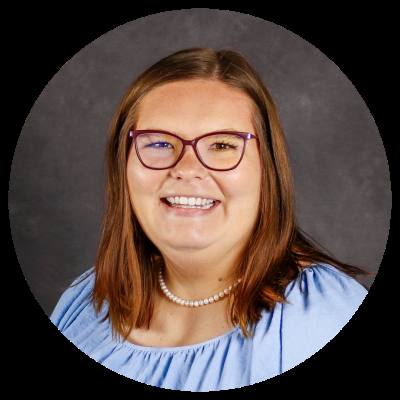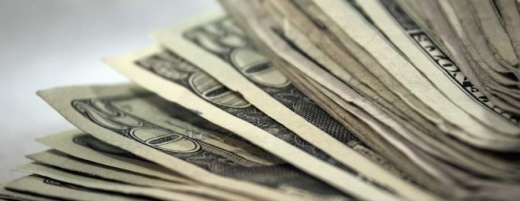Mike Ouano, the founder and owner of Bean Here, a coffee shop in Missouri City, said he has seen a decline in business due to the coronavirus ranging from 30% on a good day to 60% on a bad day. The coffee shop remains open for counter service, pickup and delivery.
Ouano said although he applied for a loan through the federal Paycheck Protection Program, he is still waiting for confirmation.
“It’s been challenging, but in the grand scheme of things, considering how a lot of places have shut down, I think we’re OK,” Ouano said. “I’m sure there’s going to be a light at the end of the tunnel for everyone at the end of this.”
The PPP was established by the federal Coronavirus Aid, Relief and Economic Security Act—which was signed into law by President Donald Trump at the end of March.
Of the $2.2 trillion dollars in the CARES Act, $349 billion was allocated to the PPP, a loan for up to $10 million for small businesses with fewer than 500 employees. The loan, which is administered through the Small Business Administration, is forgivable if a company continues to keep employees on the payroll for an eight-week period after it receives the funding.
However, the program was in such high demand that funding ran out within two weeks of loan applications beginning to be processed. Now, the federal government has passed another law, signed by Trump April 24, to infuse an additional $320 billion into program.
“I know the money’s there, but I don’t know where I am in the queue,” Ouano said. “Based on some of the news reports that I’ve read, they are saying that money is probably as good as gone at this point just because of all the people that are asking for it. If we get it, great. If we don’t get it, that’s fine, too. I’m sure there’s other shops out there that need it much, much more than we do.”
In an April 23 webinar with the Fort Bend County Economic Development Council, Houston SBA Director Tim Jeffcoat said Texas small businesses have benefited more than any other state in the nation with 134,737 businesses statewide receiving PPP loans totaling almost $29 billion after the first round of funding.
“We want you to get this funding," Jeffcoat said. "We want you to be able to get this money in your hand so you can keep your businesses solvent while this disaster continues.”
Jeffcoat also discussed other financial relief programs, including the Economic Injury Disaster Loan, available to small businesses during this time. The EIDL loan provides an advance of up to $10,000 of economic relief to businesses experiencing temporary difficulties, according to the SBA website. This loan advance does not have to be repaid.
An EIDL provides up to $2 million funded over 30 years at 3.75% interest. Jeffcoat said this money can be used to cover all business-related expenses.
“There's a lot of buzz about [the PPP] in the press because it can be forgiven, and if it is forgiven, then you could get your people paid for eight weeks and it doesn't cost you a penny,” Jeffcoat said. “But, it's only eight weeks. This is not likely to be over in eight weeks. So an EIDL loan, which is directly from the SBA, may be what's really relevant for you.”
Ouano said Bean Here received an advance through the EIDL program. He said he plans to use this money to provide baristas with higher salaries and extended hours in the upcoming weeks.
Elizabeth Huff, the economic development director for Sugar Land, shared results from a city-wide business survey during an April 23 webinar with the Fort Bend Chamber of Commerce.
Huff said the survey—which on April 21 had 287 responses, 78% of which were from small businesses with 25 employees or fewer—found that 69% of respondents had applied for some sort of emergency relief funding through the SBA.
“We were really trying to gauge how many people have reached out and tried to apply for that assistance,” Huff said. “We'll be following up and seeing how many of them actually received that assistance.”
Of the survey respondents, 92% said their business is experiencing a decline caused by the coronavirus. Additionally, 24% had laid off or furloughed between 81%-100% of their workforce while 39% had not laid off or furloughed any staff.
Keri Schmidt, the president and CEO of the Fort Bend Chamber of Commerce, said through a survey of local businesses, the chamber is hearing that many businesses are struggling with cash flow and maintaining any revenue. Because of this, the chamber is working to keep businesses informed about available aid, she said.
“It’s survival,” Schmidt said. “[The chamber spends] our time constantly thinking about what our businesses need based on that feedback. We try to address it as fast as we can with experts.”
Ouano said despite being worried, he remains optimistic about the future.
“If there’s anything I’ve learned in the whole process of this—of opening up and keeping the shop open—it’s there’s always going to be challenges in your way," Ouano said. "You have two options; you either get beat up by it or you try to overcome them, so I prefer to try to overcome them as much as possible."
Ouano said although he applied for a loan through the federal Paycheck Protection Program, he is still waiting for confirmation.
“It’s been challenging, but in the grand scheme of things, considering how a lot of places have shut down, I think we’re OK,” Ouano said. “I’m sure there’s going to be a light at the end of the tunnel for everyone at the end of this.”
The PPP was established by the federal Coronavirus Aid, Relief and Economic Security Act—which was signed into law by President Donald Trump at the end of March.
Of the $2.2 trillion dollars in the CARES Act, $349 billion was allocated to the PPP, a loan for up to $10 million for small businesses with fewer than 500 employees. The loan, which is administered through the Small Business Administration, is forgivable if a company continues to keep employees on the payroll for an eight-week period after it receives the funding.
However, the program was in such high demand that funding ran out within two weeks of loan applications beginning to be processed. Now, the federal government has passed another law, signed by Trump April 24, to infuse an additional $320 billion into program.
“I know the money’s there, but I don’t know where I am in the queue,” Ouano said. “Based on some of the news reports that I’ve read, they are saying that money is probably as good as gone at this point just because of all the people that are asking for it. If we get it, great. If we don’t get it, that’s fine, too. I’m sure there’s other shops out there that need it much, much more than we do.”
In an April 23 webinar with the Fort Bend County Economic Development Council, Houston SBA Director Tim Jeffcoat said Texas small businesses have benefited more than any other state in the nation with 134,737 businesses statewide receiving PPP loans totaling almost $29 billion after the first round of funding.
“We want you to get this funding," Jeffcoat said. "We want you to be able to get this money in your hand so you can keep your businesses solvent while this disaster continues.”
Jeffcoat also discussed other financial relief programs, including the Economic Injury Disaster Loan, available to small businesses during this time. The EIDL loan provides an advance of up to $10,000 of economic relief to businesses experiencing temporary difficulties, according to the SBA website. This loan advance does not have to be repaid.
An EIDL provides up to $2 million funded over 30 years at 3.75% interest. Jeffcoat said this money can be used to cover all business-related expenses.
“There's a lot of buzz about [the PPP] in the press because it can be forgiven, and if it is forgiven, then you could get your people paid for eight weeks and it doesn't cost you a penny,” Jeffcoat said. “But, it's only eight weeks. This is not likely to be over in eight weeks. So an EIDL loan, which is directly from the SBA, may be what's really relevant for you.”
Ouano said Bean Here received an advance through the EIDL program. He said he plans to use this money to provide baristas with higher salaries and extended hours in the upcoming weeks.
Elizabeth Huff, the economic development director for Sugar Land, shared results from a city-wide business survey during an April 23 webinar with the Fort Bend Chamber of Commerce.
Huff said the survey—which on April 21 had 287 responses, 78% of which were from small businesses with 25 employees or fewer—found that 69% of respondents had applied for some sort of emergency relief funding through the SBA.
“We were really trying to gauge how many people have reached out and tried to apply for that assistance,” Huff said. “We'll be following up and seeing how many of them actually received that assistance.”
Of the survey respondents, 92% said their business is experiencing a decline caused by the coronavirus. Additionally, 24% had laid off or furloughed between 81%-100% of their workforce while 39% had not laid off or furloughed any staff.
Keri Schmidt, the president and CEO of the Fort Bend Chamber of Commerce, said through a survey of local businesses, the chamber is hearing that many businesses are struggling with cash flow and maintaining any revenue. Because of this, the chamber is working to keep businesses informed about available aid, she said.
“It’s survival,” Schmidt said. “[The chamber spends] our time constantly thinking about what our businesses need based on that feedback. We try to address it as fast as we can with experts.”
Ouano said despite being worried, he remains optimistic about the future.
“If there’s anything I’ve learned in the whole process of this—of opening up and keeping the shop open—it’s there’s always going to be challenges in your way," Ouano said. "You have two options; you either get beat up by it or you try to overcome them, so I prefer to try to overcome them as much as possible."





